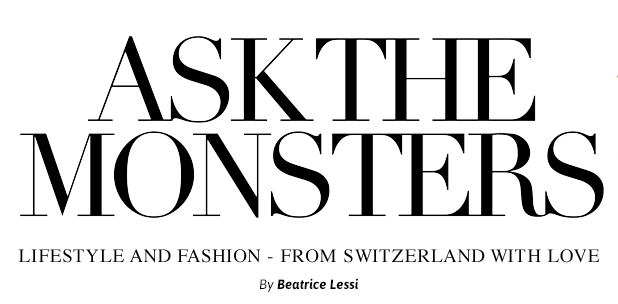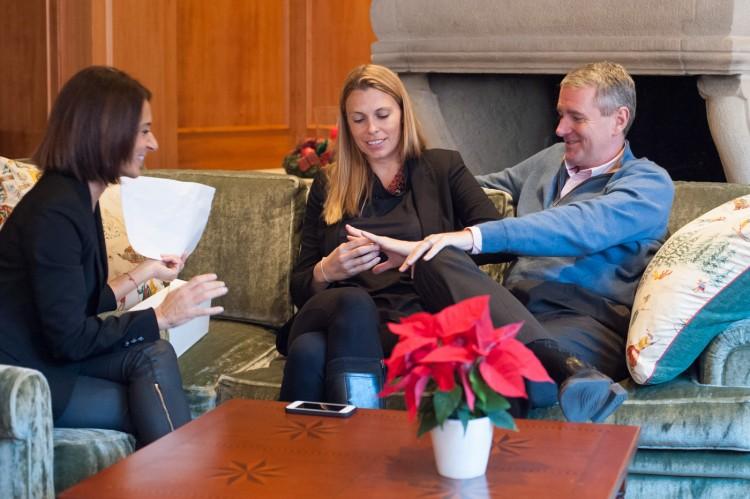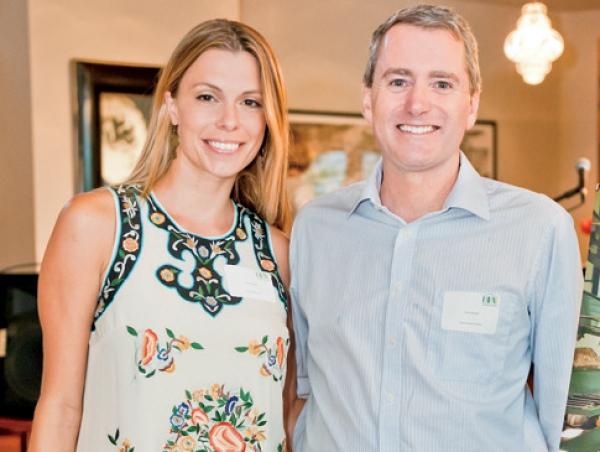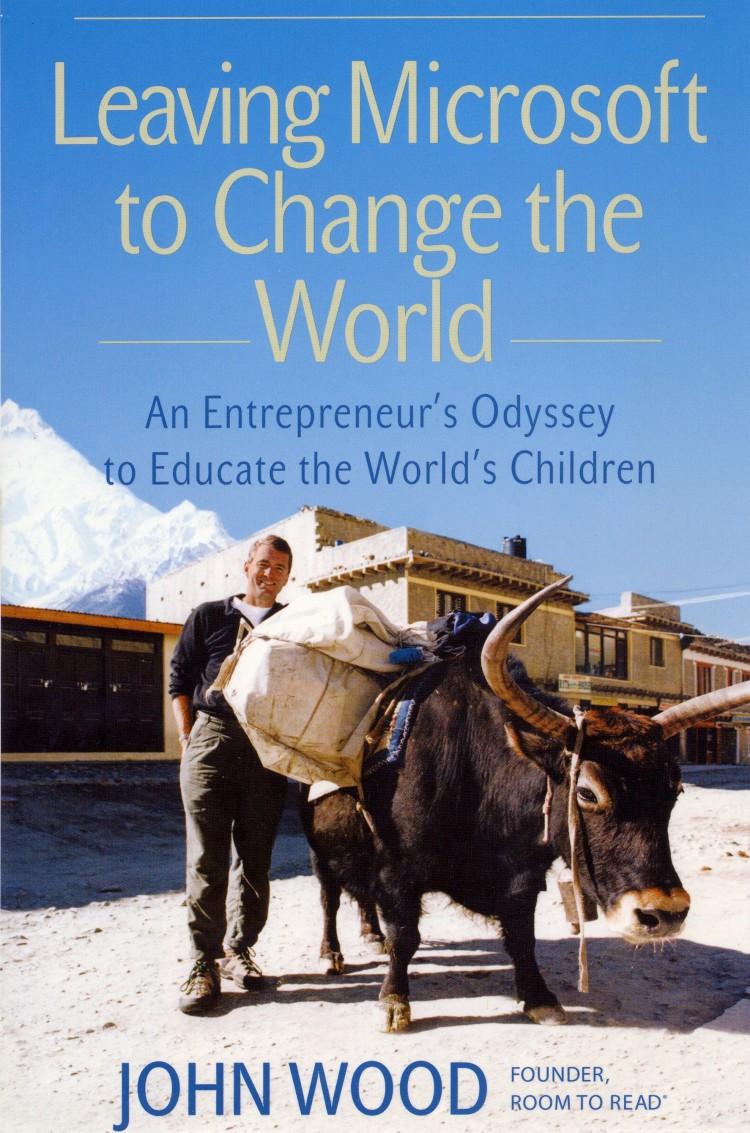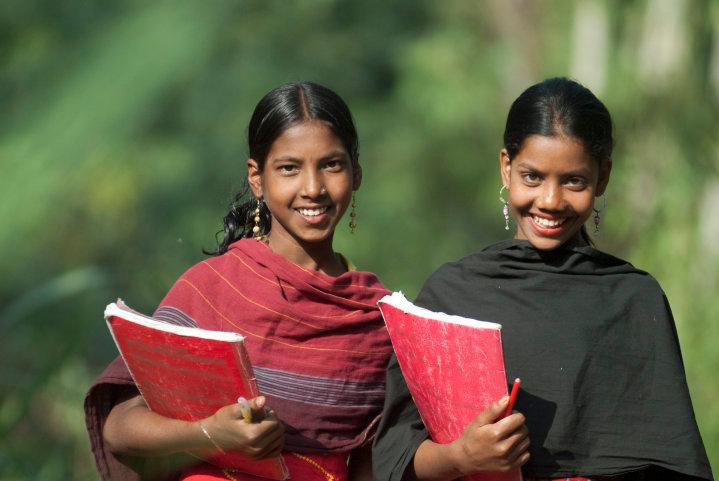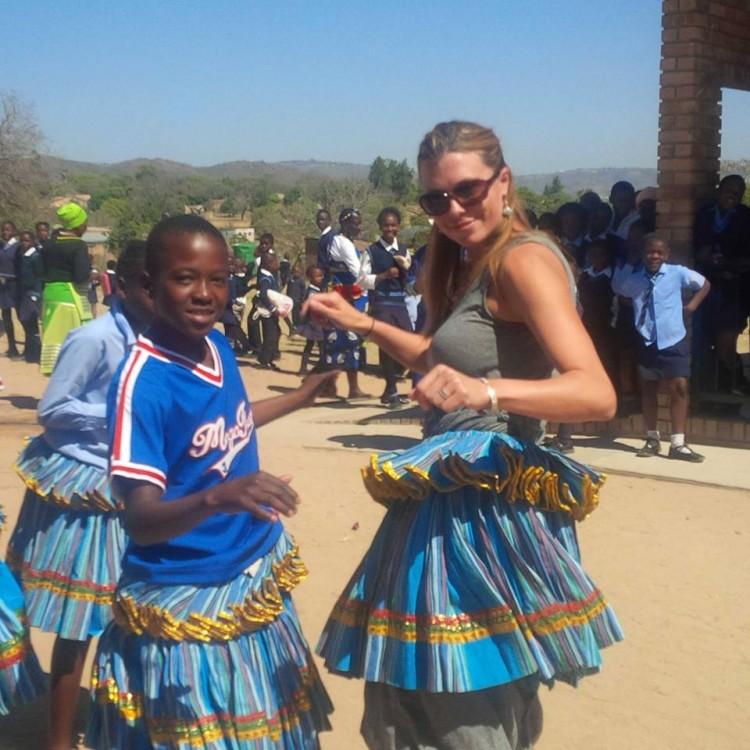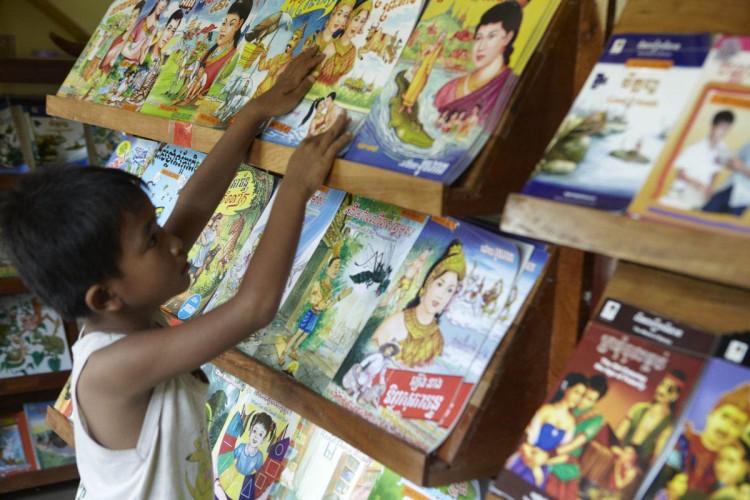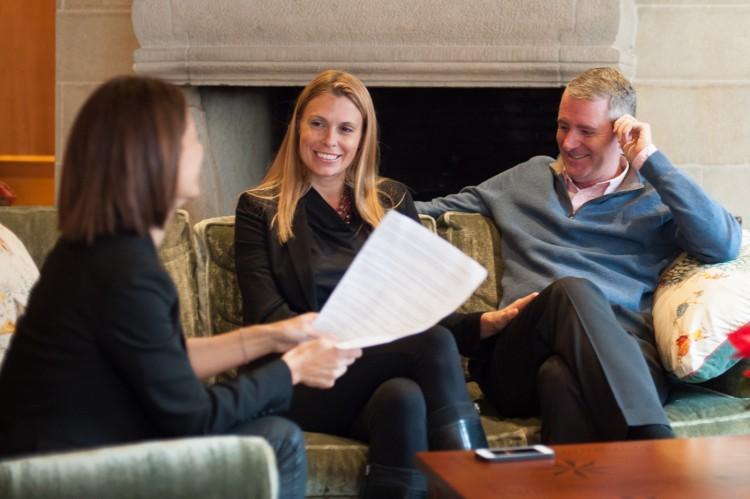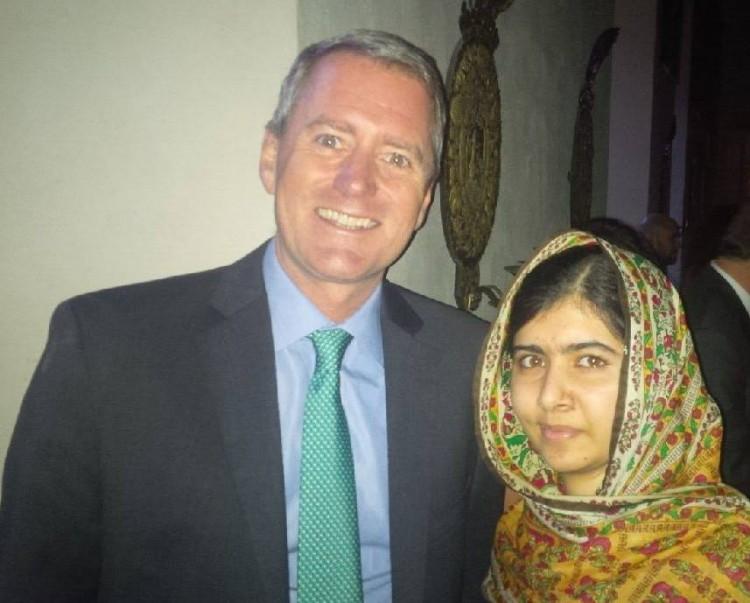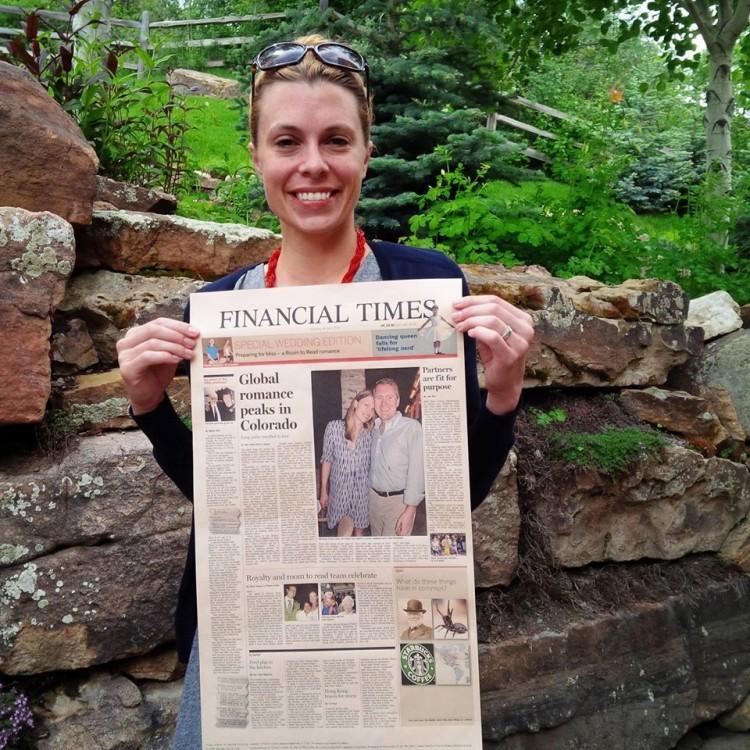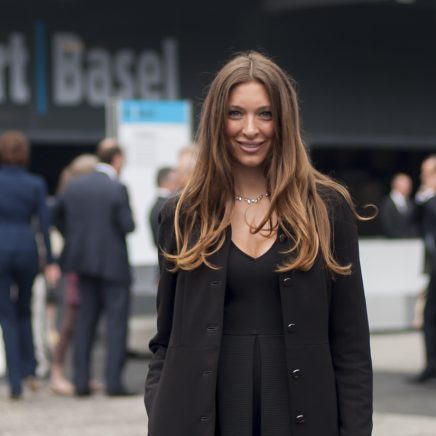Global Romance. Do NOT read.
Would you like to meet the man who left a top job in Microsoft to change his life dramatically, who beat Starbucks by far in his company’s growth rate, and just got married for the first time at age 50? And would you like to meet his hospitality expert/kaleidoscopic wife, who is changing the world together with him between a career, runs, marathons and hikes? Then do not read this article.
Why am I challenging you about not reading? Because I saw one of John’s gala events, where he invites potential investors for dinner and gets the audience’s attention with a bet. He asks his guests to do what millions of people do every day…but he bets his guests won’t be able to. Ready? Go!
The challenge is: DO NOT READ. Stop reading the screen, stop reading anything on the computer, stop reading your telephone, the street signs, the labels of products, maps, everything. Do you think you can go 24 hours without reading? Or 24 minutes, maybe? How about 24 seconds?
Hard to imagine a day without reading.
What about a lifetime?
1 in 7 adults across the globe cannot read.
Yes, you read well: one in seven adults today cannot read. John didn’t know this either when he went on a holiday that transformed his life forever. While in Nepal for his longest holiday in nine years (of his busy career as a sales director at Microsoft Australia) he visited a school in a small Himalayan village. There were seventy children in each classroom, the sun on the metal roof made the rooms as hot as ovens, there were no desks and the so called library was empty. Watching John’s expression of shock in the library, the head teacher told him: “Maybe, sir, one day you will be back with books”. And John did.
If you are going on with reading, here is the chat I had with John and Amy, whom I had the pleasure to meet in St Moritz (Switzerland), where they joined the the UBS Global Philantrophy Forum in Badrutt’s Palace and talked about their work.
Beatrice: John, can you tell me what happened exactly with the Starbucks challenge?
John: The whole idea started when I left Microsoft and founded Room to Read (a non profit organisation for improving literacy and gender equality in the developing world). What normally happens with private sectors is that when they see an opportunity, they respond by scaling. Unfortunately, in the charity sector that’s not often the case, as they don’t grow quickly. So in the second year I set the Starbucks test and I said “ok, let’s see if we can open libraries as fast as Starbucks opened outlets in their second year”. Then we looked at how many they opened in their third and fourth year. By then we overtook them: in 4 years, Starbucks had opened 1000 outlets, and we had opened 1600 libraries.
Beatrice: Did you find a lot of resistance to that plan?
John: Many people refused to help me during the first months of the project. But this didn’t worry me too much. My working experience had thought me one very important lesson. If nobody refuses you, you aren’t asking enough people. I think there is never shortage of people who will tell you why your idea won’t work, and there is always some resistance to bold ideas. The key is either to ignore detractors, or to ask them: ”ok, why is it not possible, in your opinion? If you tell me why, I can figure out what my obstacles may be, and you can help me to go beyond those barriers”. I set the Starbucks test because if I had said “I want to open 10 libraries”, people would have said: “oh…that’s great, good luck”, but instead I set myself a higher goal so people normally answered: “wow, that’s a very exciting vision! How can I help, how can I get involved?”
Beatrice: Amy, you are a wine expert, a food writer, a blogger and you just accepted a new job as Director of Public Relations for the Four Seasons Hong Kong, so your own career is quite demanding too. Do you plan to keep separate things separate, or to work with Room to Read too?
Amy: it’s nearly impossible for us NOT to have an overlap! But this is mutually beneficial. The Four Seasons has already been a partner with Room to Read for the last 3 years. We live in Hong Kong and this is a small, very international city. When Room to Read donors come here from around the world, they stay at the Four Seasons. If I can encourage more of them to stay there, then I’m doing my job. We do events, fundraising, even running competitions together to raise money for Room to Read. I have always been very passionate about the cause – it is what brought us together in the first place. Actually I waited a while before telling everybody we were dating, because I thought: if this isn’t going to work, I still want to work for Room to Read! (laughs)
Beatrice: Why did you guys move to Hong Kong, was it for Amy’s career?
John: it was a joint decision; every decision we take has to work for both of us. After starting to date we initially moved to New York, now we are in Hong Kong, and who knows where, after. Hong Kong is great for Amy’s career, but also for Room to Read because we have so much going on here.
Beatrice (watching John’s hands): Amy, what ‘s the meaning of John’s tattoo?
Amy: It’s John’s weeding ring! That way he will never lose it. I like it very much and we designed it together…I might get one too. My ring also has a special meaning to me. It was custom made by the n.1 sustainable jewellery designer in New York, Lisa Linhardt. We used a diamond from my grandmother’s wedding ring, and a sapphire from Sri Lanka, which is one of our favourite places. All metals she uses are recycled, and the diamonds she uses are conflict-free. Her jewellery is beautiful and as sustainable as possible.
Beatrice: John, talking about diamonds and luxury, do you feel that your spending habits are always in line with your charity work, or do you do anything extravagant?
John: We try to figure out how to avoid spending money we don’t need to spend. We fly on frequent flyer miles. I flew here for the conference and added two days so that’s how I do my holidays. I don’t own a house. When I invite people to Gala dinners, a sponsor pays for the event. We are very lucky in the sense that we are not passionate about expensive things. Thank goodness I’m not into Ferraris, emerald necklaces or anything like that! We are passionate about hiking, running, reading and we try to use our free time for that. We both love good food and this is also part of Amy’s job. We love finding good places which are not expensive. When we have an investor it’s the moment we might splurge, and tell him: I’ll take you to a really nice place. We don’t live like Gandhi either!
Beatrice: Amy, you and John seem extremely positive and optimistic people: you always focus on good numbers and great results. I live in Europe though, and sometimes wonder if this is an American way of making things appear better than they are?
Amy: John is definitely a positive person; we both are… natural optimist. You’re always going to have bad days, there are times where John is swearing at his computer because it’s not working! But when something happens, we are over in 30 seconds and go to the next thing. Most of the things people are upset about are not worth to be upset about .

At finish line of the Jungfrau Marathon: 6000 feet total elevation gain in the beautiful Swiss Alps.
John: I would find it almost impossible not to be an optimist. If you are born in a developed country and could have an education, then I think you can’t be pessimist. We won the lottery of life and we wish to tell all children too: you were born in the right place, at the right time.
Is there anything more encouraging than seeing girls going to school, reading books, seeing their whole community involved and breaking the poverty cycle? We are both very positive because we are able to do what we love. When I was a child, in the United States, my mother read me stories at bedtime. On long car trips, or late at night when everybody was asleep, my nose was always in a book. I couldn’t imagine a world without books for children. This is my dream job.
Beatrice: You mentioned books.. we haven’t talked about books yet. Why did Room to Read become a publisher? Don’t you think there were already enough publishers out there?
John: The problem is that no publisher is interested in printing books for people who don’t have the money to buy them. Nobody published children’s books for rural communities and that keeps people more uneducated and poorer in return. So we thought we better find a way to do that ourselves. If someone donates 5 euro, we can print 5 books.
Beatrice: In the local language?
Amy: Yes, the whole school program is in the local language (which in some cases can be more than one), plus English as a second language. Teachers are all local; when a Room to Read program starts, a local person goes to the community and says that he/she is representing Room to Read, that they are going to build a school and a library and work with teachers. This design allows local residents to actively take part to the program, which is extremely important because that way we use money in a way that changes the future of people – when we leave, our work goes on.
Beatrice: Amy, would you say that this part of the job is very emotional?
Amy: Oh, absolutely. Meeting communities and talking to people is always deeply emotional, I mean always. You can not …not be moved. A month ago we were in Sri Lanka and had so many moments like that. We went to 3 different homes and they had very different situations but a sort of common thread. We had a meeting where the parents had the opportunity to speak and we kept hearing “thank you for treating us as equals”. That was very powerful; these were people really on the margins… having a group that invests in them, cares about them and treats them with respect… that’s something they don’t get a lot. It’s most definitely the best part of the job.
Beatrice: John, are you a business man or a philanthropist?
John: I spend most of my time in the developed world fundraising, to make sure we have enough money to be able to reach more kids and more places, but for me the best part of the job is being, say, in a rural village in Cambodia and seeing part of the process.
Beatrice: And Amy, do you find you are the creative one in the couple?
Amy: John is! Actually one of the fun things I enjoy most doing with him is brainstorming together. We brainstorm even about a title for my blog – he comes up with things I would have never thought of.
John: I don’t see myself being creative. If you ask me about how can Room to Read be able to raise 15 million dollars, I can be creative with that maybe, or around business problems or strategies. Not much otherwise.
Beatrice: Do you sometimes find resistance, when going to a community and proposing to interact with them?
John: In fact, we have the opposite problem. We have a waiting list. Parents want their children to get an education. Parents around the world all have the same dream.
Beatrice: John, how did it feel to receive a prize with 15 years old Malala? (John has just received the World’s Children’s Prize by Queen Silva of Sweden together with Nobel Laureate Malala Yousafzai)
John: We got along fabulous, the whole thing is very symbiotic . Malala is a messenger for the world and people really listen to her. This is fantastic because without education, especially for girls and women, nothing changes in the world. I do believe education is the number 1 and most important issue in the world to solve ; Malala is unparalleled for her ability to say that. That being said, you have to have groups on the ground like Room to Read for getting results at scale. Malala’s voice can convince people to take action but you have to be able to actually do it.
Beatrice: How many children have been reached by Room to Read?
John: 9 million children. We work in 18 000 villages and we have 13 000 volunteers working for us with passion. We want to grow much more because as I said small charities do very good things, but nothing about scale; and that is my goal.
Beatrice: Thank you guys for the chat, my hour is finished so I’ll let you go back to the conference.
John and Amy stand up, say goodbye and both give me three kisses on the cheeks like real Swiss people – something I , even though I’ve been living in Switzerland for 10 years, always get confused with. I am impressed by how quickly they master local habits – I think now I understand why, as a wedding present, they were given a customised copy of the Financial Times with the title “Global Romance” by FT CEO John Ridding. John and Amy think (and kiss, for the matter!) global indeed.
If you want to help Room to Read to spread the message, just share the Do Not Read video:
